Of course, anyone who spends much time on Twitter knows that Taylor herself has had ample experience with both sides of that. She is a lightning rod in the online culture wars, loved and supported as much as she is reviled and targeted. She is a frequent subject of critiques from her ideological opponents, a cast that includes such figures as Tucker Carlson, Jake Paul, and Glenn Greenwald, to name a few.
And how does she take that? Well, it’s just how life is online, she says.
“What people do on the internet is they build up other people into characters online, and it’s like this crazy soap opera every day.” Her enemies turn her into a character, she says, because it gives them opposition. “It’s just classic influencer tactics, right? You are going to make this other YouTuber into a villain and you’re going to have this feud and then that galvanizes your audience.”
And yet she remains a believer in technology as a force for good. “It’s cool to see people use the internet for progress and to bring more freedom to all of us,” she says. “I think that’s what the goal of the internet should be. It should be a liberating force.”
In this conversation, we discuss the recent history of the internet, social media, and the rise of influencers—of which Taylor is one. Aside from high-profile reporting jobs at The Atlantic, the New York Times, and the Post, she has also amassed huge followings on TikTok, Twitter, and Instagram. In October, her first book will be published. Its title couldn’t be more appropriate: Extremely Online.
Quotes from the conversation
On being a journalist
You’re always learning. It’s one of those jobs where you’re always learning and you’re always meeting new people and you’re always being exposed to new ideas and new technologies. I cover tech, so for someone like me, it’s a dream.
On growing up
I did a lot of art growing up, and I was always into creative stuff. I have a lot of learning disabilities, I’m very dyslexic, I had a really hard time in school, so I think I just gravitated towards creative stuff.
On writing
Writing is just a way for me to do journalism. I don’t really love writing. They say reporters fall into two categories: you either love the reporting side of it or you love the writing side of it. I love getting information and finding out new information and presenting my thoughts to the world.
On the internet
I think of my life before the internet, and I would never go back to that. I think that the beauty of the internet is you are exposed to so many different people and ideas.
On Tumblr
Back in 2009, Tumblr was so ascendant. I mean, I started as a blogger, and I had a bunch of blogs on Blogspot, and blog-blogs, and I liked that. But then I discovered Tumblr, and it had all this social functionality to blogging that I just loved. You could curate things too; I mean, there’s the concept of re-blogging. Obviously re-blogging existed prior to Tumblr, actually was invented a few years before, but Tumblr really brought it to life.
On pre-’00s blogging
What I loved about the blogging ecosystem is it was a lot of different point of views, and a lot of people from really different backgrounds that I hadn’t ever really encountered before, and I loved peeking into people’s worlds. Which we do all day long now on the current internet, but it’s hard to remember how disjointed everything was and how hard it was to find people.
On first encounters in journalism
There were all these panels like, “Oh, bloggers consider themselves journalists.” And so I was always like, fuck the media. Bloggers are journalists, and bloggers are better than journalists, actually, because I was a blogger myself and it just resonated.
On first jobs in journalism
[The Daily Mail] hired me and didn’t understand that it was a big role, and then I blew the—I mean the Daily Mail Facebook page, obviously—blew up, because it was pretty easy. I got very good at writing headlines that would do well on Facebook.
On tabloid news
I think a lot of people in the journalism world put themselves on a really high horse and act like we are the defenders of democracy, when a lot of the times they’re providing entertainment.
On learning headline-writing
The headline that was written, I think I had written on Facebook, or one of my team did, was like, “Whale spotted for the second time.” And [editor Martin Clarke] was like, “No, it’s the whale that can’t stay away,” and “Here, you need to tell this story and you need to frame it.” I just learned a lot through that in terms of storytelling.
On 2017
It was this year where people suddenly started to look at the content creator industry and the internet and be like, whoa, there’s actually a lot going on here that we, as in traditional media, have ignored and not taken seriously and dismissed.
On being a millennial journalist
Especially as a woman, that I was identifying myself as a tech journalist since 2010, people were horrible online. I mean people that I know now that I really love, but they were horrible. They were just like, “Oh, she’s not a real tech journalist. She wants to write about YouTubers.”
On receiving online hate
I’m not going to stop doing something I love and have done for like almost 15 years because some trolls in a corner want to yell about me. I think the way to dismantle that too is to expose it and to talk about the reasons why.
On real harassment
I’m talking about stalking and swatting my parents. I’m talking about harassing my family members, getting my family members fired from their jobs, trying to get the children of my family members taken away. I’m talking about doxing to an obscene level. A lot of the stuff that bothers me most is the stuff that’s happened to the people around me.
On looking past online hate
It’s cool to see people use the internet for progress and to bring more freedom to all of us. I think that’s what the goal of the internet should be. It should be a liberating force. I think I’m very much a techno-optimist.
On the future
I love technology and I think that is how we are going to build a better world, is through technology. We just have to make sure [of] who’s in charge of those tech products and how they’re being shaped. And I think social media has been very bad in a lot of ways.
On looking back
I think we’re going to look back and just be like, “Ooh, that was crazy. I can’t believe they used to be able to post to the entire world and say all this stuff.” Yeah. But it’s such a short time. I mean, especially when you think of Twitter in 2013, it was so different. The modern internet that we’re thinking of is very recent.
On trends beyond the culture wars
I do think people are retreating more into spaces where they can control their environment. I’ve written about the rise of sort of Discord and group chats, and I just think people are trying to limit their exposure.
Taylor’s recommended reads:
Show notes
Subscribe to Taylor Lorenz’s newsletter on Substack
Find Taylor on Twitter
Taylor’s upcoming book, Extremely Online
[04:54] Becoming a journalist
[08:20] Tumblr and blogging
[13:05] The “fuck yeah” era of Tumblr
[18:14] Tabloid news
[22:19] Developing a new beat
[26:56] Gaining prominence
[32:13] Dealing with online harassment
[38:57] The state of the media
[42:05] Ephemerality and the internet
[53:14] Being a techno-optimist
[1:01:19] Extremely Online book
[1:05:50] Taylor on her recommended reads
The Active Voice is a podcast hosted by Hamish McKenzie, featuring weekly conversations with writers about how the internet is affecting the way they live and write. It is produced by Hamish McKenzie, with audio engineering by Seven Morris and content production by Hannah Ray. All artwork is by Joro Chen, and music is by Phelps & Munro.
Postscript



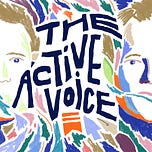







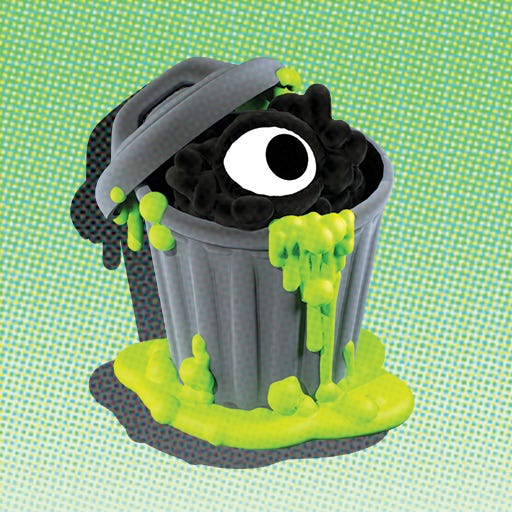
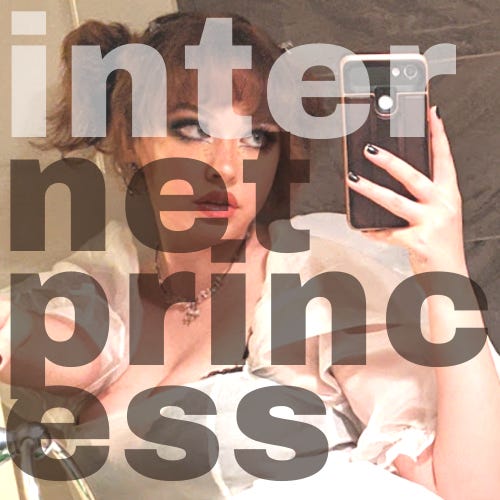

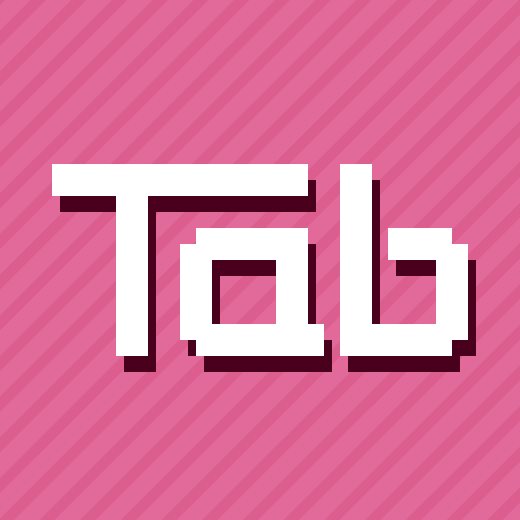












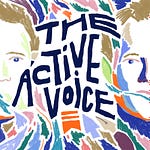
Share this post